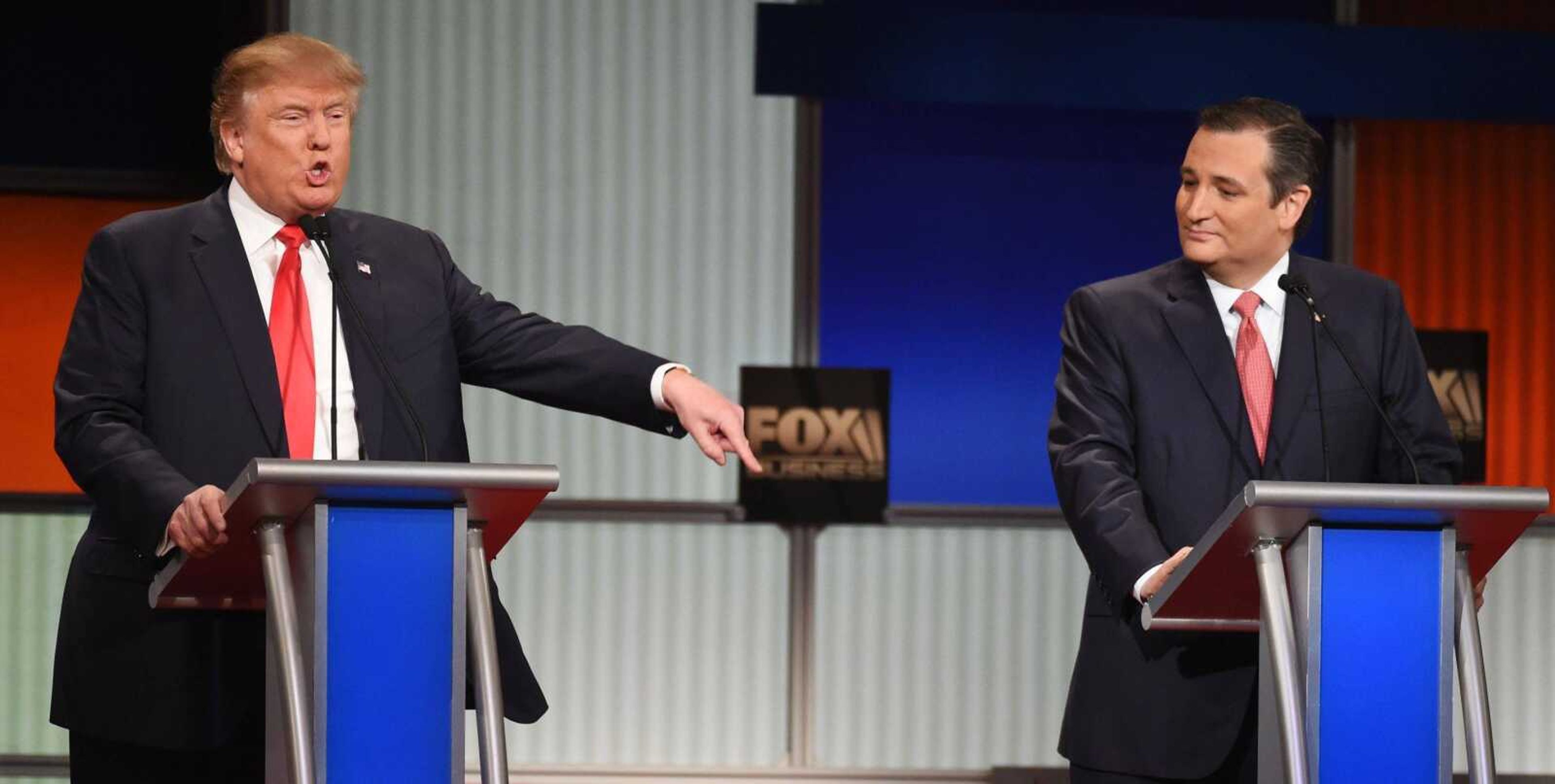NORTH CHARLESTON, S.C. -- Republican presidential candidates Donald Trump and Ted Cruz clashed Thursday night over the Texas senator's eligibility to serve as commander in chief and the businessman's "New York values," ending months of civility between fiery contenders seeking to tap into voter anger and frustration.
More than two hours of prime-time argument presented voters with a sharp contrast to the optimistic vision of America that President Barack Obama painted in his State of the Union address earlier this week.
The candidates warned of dire risks to national security if a Democrat is elected to succeed Obama and challenged claims of recent economic gains.
Heated exchanges between Trump and Cruz dominated much of the debate, with the real-estate mogul saying the senator has a "big question mark" hanging over his candidacy given his birth in Canada to an American mother.
"You can't do that to the party," Trump declared.
Cruz suggested Trump was turning on him only because he's challenging Trump's lead, particularly in Iowa, which kicks off voting Feb. 1.
Cruz renewed his criticism of Trump's "New York values," a coded questioning of his rival's conservatism. But the barb appeared to backfire, eliciting an unexpectedly emotional response from Trump about his hometown's response to the Sept. 11, 2001, attacks.
"When the World Trade Center came down, I saw something that no place on Earth could have handled more beautifully, more humanely than New York," Trump said. "That was a very insulting statement that Ted made."
At times, the contest between some of the more mainstream candidates seeking to emerge as an alternative to Trump and Cruz was just as fiery, particularly between Florida Sen. Marco Rubio and New Jersey Gov. Chris Christie.
Rubio likened Christie's policies to President Obama's, particularly on guns, Planned Parenthood and education reform -- an attack Christie declared false. Seeking to undermine Rubio's qualifications for president, Christie suggested senators "talk and talk and talk," while governors such as himself are "held accountable for everything you do."
Rubio entered the debate as the top target for most of the other establishment-minded candidates.
He largely escaped the criticism of his Senate voting record and immigration policies that have dogged him on the campaign trail and in television advertisements blanketing airwaves in early voting states -- until near the end, when Cruz confronted him on immigration.
Rubio fired back by accusing Cruz of switching positions on immigration himself, then ticking off a litany of other areas where he said the Texas senator had flip-flopped.
"That is not consistent conservatism," Rubio said. "That is political calculation."
Cruz was also on the defensive about his failure to disclose on federal election forms some $1 million in loans from Wall Street banks during his 2012 Senate campaign. He said it was little more than a "paperwork error."
Rubio and Christie are among the candidates seeking to break out of the establishment pack, particularly in the New Hampshire primary, which quickly follows the lead-off Iowa caucuses. The race in Iowa has settled into a tight, two-way contest between Trump and Cruz.
Thursday night's debate came at the end of a week that has highlighted anew the deep rifts in the Republican Party. South Carolina Gov. Nikki Haley, a rising GOP star, was praised widely by many party leaders for including a veiled criticism of Trump's angry rhetoric during her response to Obama's State of the Union address -- only to be chastised by conservative commentators and others for the exact same comment.
Trump said he wasn't offended by Haley's speech and argued his anger is justified.
"I'm very angry because our country is being run horribly," he said. "And I will gladly accept the mantle of anger."
Trump also stuck with his controversial call for banning Muslims from the United States temporarily because of fear of terrorism emanating from abroad. He said he had no regrets about the proposal and noted his poll numbers rose after he announced the plan.
Former Florida governor Jeb Bush, who has emerged as a frequent critic of Trump, urged the front-runner to reconsider the policy.
"What kind of signal does that send to the rest of the world?" said Bush, who has struggled to gain any momentum in the race and often appeared overshadowed Thursday night.
Ohio Gov. John Kasich also broke with Trump on the Muslim ban, but like the entire GOP field, he called for at least a temporary halt on the Obama administration's plan to allow thousands of Syrian refugees into the country.
Connect with the Southeast Missourian Newsroom:
For corrections to this story or other insights for the editor, click here. To submit a letter to the editor, click here. To learn about the Southeast Missourian’s AI Policy, click here.







